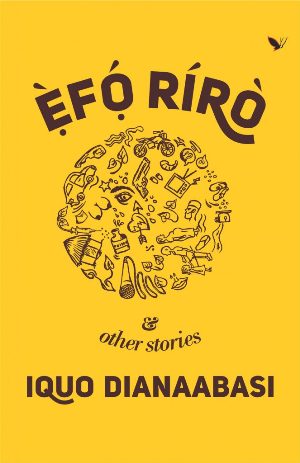

On the 14th November 2015, I participated in the 17th edition of the Lagos Art & Book Festival hosted by CORA, the highly esteemed Committee for Relevant Art led by renaissance men Toyin Akinoso and Jahman Anikulapo. The 3 day programme (13th – 15th November), was staged across the lovely spaces of Freedom Park. Toyin had invited me to serve as a book reviewer at a session entitled “African Chronicles of Self-Determination†with the theme “Our Land, Our Resourcesâ€. Dr. Bunmi Oyinsan presented an excellent review of Ike Okonta’s ‘When Citizens Revolt: Nigerian Elites, Big Oil and The Ogoni Struggle for Selfâ€. The book picked by the LABF team for me to review was the internationally acclaimed “What is the What†by Dave Eggers. A major distinction of the book is that proceeds from its sale go to the Valentino Achak Deng Foundation which, inter alia, distributes funds to Sudanese refugees in America and to rebuilding Southern Sudan beginning with Achak Deng’s native village of Marial Bai(www.valentinoachakdeng.com).



I couldn’t believe it! Of all days to fly to the US seeking final sanctuary, why the day Osama Bin Laden has set aside to bomb the Twin Towers and the Pentagon? Why that day?
I read on, thinking that if the “What†of the title points to a multitude of possibilities - as the riddle suggests - this must be the limit. What now? Achak Deng gives voice to the crushed hopes of the boys: “Why would a country under attack need people like us? We (are) added trouble for a troubled countryâ€.

Children are the greatest casualties of any kind of war: marital wars, religious wars, oil wars, civil wars, world wars. Save the Children – the international charity was conceived in response to the need to protect children during and after World War I. SOS Children’s Village – with branches all over the world and which provides long term formal care was created in response to the large numbers of children orphaned by World War II. The Nigerian Red Cross operates a  Motherless Babies Home here in Lagos established in response to Nigeria’s civil war. What are we going to do with all these babies?! It was an epidemic in our land: so many babies and children orphaned by our own tribal struggles for primary commodities – for wealth and power - and Biafra’s struggle for secession.
Motherless Babies Home here in Lagos established in response to Nigeria’s civil war. What are we going to do with all these babies?! It was an epidemic in our land: so many babies and children orphaned by our own tribal struggles for primary commodities – for wealth and power - and Biafra’s struggle for secession.
Reading “What is the What†is harrowing but you must read it because we must remember that even if life in our own little corners of the world is peaceful or appears to be, is orderly or appears to be, and life appears to make some sort of sense, there are parts of our world caught up in so-called struggles for self-determination, where all peace, all order and all sense have been consumed in hell’s raging fires.

Thankfully the lost boys make it to America where they are resettled in various cities. Achak Deng, our narrator, takes up residence in Atlanta. Author, Dave Eggers so fully inhabits Achak’s soul as he writes his memoirs, that a major newspaper has hailed the book a “triumph of ventriloquyâ€. Only the author’s awareness of Achak’s story as a God given, sacred trust could have produced a result like that. So, let me end my review of Achak’s story, the story of the lost boys of Sudan, in Achak’s own words:
“When I first came to this country..…If someone cut in front of me in a line, ignored me, bumped me or pushed me, I would glare at them, silently hissing my story to them. You do not understand, I would tell them. You would not add to my suffering if you knew what I have seenâ€. Click Here to get a copy




